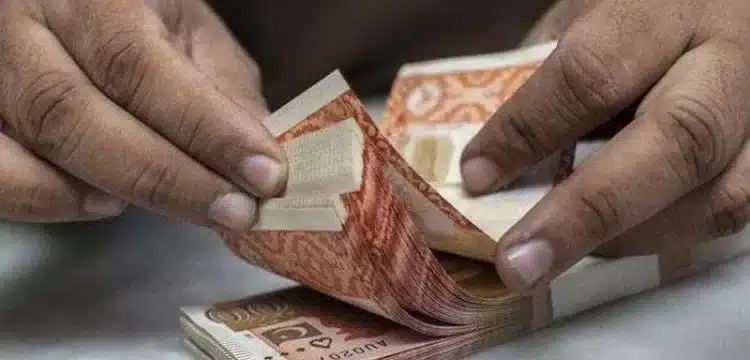[vc_row][vc_column][vc_column_text dp_text_size=”size-4″]
In recent times, the buzz around the potential discontinuation of the 5000 Pakistani Rupee note has captured the nation’s attention. Speculations and rumors have flooded social media platforms and news outlets, leaving the general public in a state of confusion and anticipation. As the highest denomination note currently in circulation in Pakistan, the fate of the 5000 Rupee note holds significant implications for the economy and the daily lives of its citizens. This blog aims to dissect these rumors, presenting a clear picture of the current situation, its impacts, and guiding the public through any forthcoming changes.
Understanding Pakistan’s Currency: A Prelude to Change
The Pakistani Rupee, with its diverse denominations, serves as the backbone of the country’s economic transactions. Among these, the 5000 Rupee note is particularly noteworthy due to its high value. Historically, governments worldwide have phased out large currency notes to curb illegal financial activities and promote digital transactions, marking significant shifts in their economic landscapes. Does the potential ban of the 5000 Rupee note signal a similar transition for Pakistan?
Read more: Is Pakistan Ceasing The Rs5000 Note From Circulation On Sept 30?
The Official Stance on the 5000 Rupee Note
Contrary to rampant speculation, official sources from the State Bank of Pakistan and the Ministry of Finance have provided clarifications regarding the status of the 5000 Rupee note. As of the latest updates, [insert any official statement or decision on the 5000 Rupee note ban here, if available]. It’s essential to rely on official communications to avoid misinformation and panic.
The Rationale Behind the Ban
If the government has indeed decided to phase out the 5000 Rupee note, the reasons would likely mirror those of other nations who have taken similar steps. Objectives such as combating black money, enhancing transparency in financial transactions, and encouraging the use of digital banking platforms are commonly cited. Such a move could significantly influence Pakistan’s economy, reducing corruption and making financial dealings more traceable.
Economic and Social Reverberations
The withdrawal of the 5000 Rupee note from circulation would undeniably shake the economic landscape. Short-term impacts might include a temporary cash shortage and increased pressure on banks and ATMs as citizens rush to exchange or deposit their high-value notes. However, the long-term benefits, such as an uptick in digital transactions and a more transparent financial system, could reshape Pakistan’s economy for the better. Public adaptation to these changes would be crucial, necessitating widespread awareness and education on digital financial services.
Leveraging Digital Banking: A Future-Proof Strategy
The speculated discontinuation of the 5000 Rupee note underscores a pivotal shift towards digital banking and electronic transactions in Pakistan. This transition promises numerous benefits, including enhanced security, greater convenience, and a reduction in illegal financial activities. To navigate this shift effectively:
- Embrace Digital Wallets and Online Banking: Highlight the importance of familiarizing oneself with digital payment systems and mobile banking apps. Offering tutorials or links to resources can empower readers to take the first steps toward digital literacy.
- Promote Financial Inclusion: Discuss how digital banking can bridge the gap for unbanked populations by providing easier access to financial services through mobile technology.
Economic Reforms and Anti-Money Laundering Efforts
The move to ban high denomination notes is often part of broader economic reforms aimed at improving transparency and combating money laundering. This section could explore:
- Global Perspectives: Draw parallels with other countries that have undertaken similar measures, such as India’s demonetization initiative in 2016, and the outcomes of those actions.
- Strengthening the Economy: Analyze how reducing reliance on cash transactions can lead to a more robust, accountable financial system that attracts foreign investment and supports sustainable growth.
Mitigating the Impact on Vulnerable Populations
The transition away from the 5000 Rupee note may pose challenges for certain segments of the population, including the elderly, rural dwellers, and those without access to digital banking services. Addressing these concerns, the blog could offer:
- Community Support Initiatives: Highlight initiatives by the government and NGOs to facilitate the transition for vulnerable groups, such as mobile banking units or digital literacy workshops.
- Public Feedback Mechanism: Encourage the establishment of feedback channels where citizens can express their concerns and receive support, ensuring the policy implementation considers the needs of all stakeholders.
Navigating the Transition: A Guide for the Public
For individuals holding 5000 Rupee notes, understanding how to exchange or deposit these notes is paramount. [Insert detailed steps provided by the State Bank of Pakistan or financial institutions, including deadlines and required documentation, if applicable]. Ensuring a smooth transition for the general public would require comprehensive support from banks and financial institutions.
Wrapping Up: The Road Ahead
The discussion around the 5000 Rupee note ban in Pakistan serves as a reminder of the dynamic nature of economic policies and their far-reaching impacts. While change can be daunting, staying informed and adaptable is key to navigating these shifts successfully. As we await further updates, it’s vital to engage in constructive discussions and prepare for a future that embraces digital financial solutions.
FAQs
- Is the 5000 Rupee note currently banned in Pakistan?
As of the latest official updates, there has been no formal announcement regarding the ban of the 5000 Rupee note by the State Bank of Pakistan or the Ministry of Finance. For the most accurate and up-to-date information, always refer to official sources.
- Why would the government consider banning the 5000 Rupee note?
Governments typically consider banning high-denomination currency notes to combat black money, reduce corruption, encourage digital transactions, and improve the transparency of financial transactions.
- How will I be affected if the 5000 Rupee note is banned?
If a ban were implemented, individuals holding 5000 Rupee notes would likely need to deposit or exchange them by a specified deadline. It could also accelerate the shift towards digital banking and electronic transactions across the country.
- What should I do with my 5000 Rupee notes if they are banned?
The State Bank of Pakistan would provide guidelines on how to deposit or exchange your 5000 Rupee notes, including the process, deadlines, and required documentation. It’s important to follow these official instructions closely.
- Will there be any compensation or exchange for banned 5000 Rupee notes?
Yes, if a ban is announced, the public will be able to deposit or exchange their 5000 Rupee notes for other denominations or electronic credit according to the guidelines set by the State Bank of Pakistan. There will be no loss of value for legally held currency.
- How can I distinguish between real and counterfeit 5000 Rupee notes?
Genuine 5000 Rupee notes have several security features, such as watermarks, security threads, and unique printing techniques. The State Bank of Pakistan provides resources and guidelines to help identify authentic currency notes.
- What impact could the ban have on the economy?
Short-term effects might include a rush to deposit or exchange notes and a temporary shift in spending patterns. Long-term, the economy could benefit from reduced corruption, increased transparency, and a boost in digital transactions.
- How will businesses be affected by the 5000 Rupee note ban?
Businesses might need to adjust their cash handling processes, especially those heavily reliant on cash transactions. Adapting to more digital payment methods could be beneficial in the long run.
- Are there any plans to introduce new currency notes?
The introduction of new currency notes or the redesign of existing denominations is a decision made by the State Bank of Pakistan based on economic needs and goals. Any such announcements would be officially communicated to the public.
- Where can I get more information about the 5000 Rupee note and its legal status?
For the most reliable and updated information, visit the official website of the State Bank of Pakistan or contact their customer service. Official government press releases and reputable news sources are also good resources for accurate information.
[/vc_column_text][/vc_column][/vc_row]











